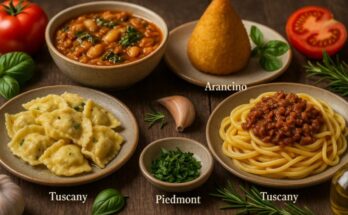In today’s economy, finding ways to stretch our budgets is more critical than ever. One area where many households can make significant savings is grocery spending. It is one of the most effective methods of saving money on groceries if you plan your meals. This simple step can help you:
- Reduce food waste
- Make better use of ingredients
- Stick to your budget
Take some time each week to plan your meals and create a shopping list based on those plans. This will help you stay focused at the store and prevent overbuying.
Shop with a list
Once you’ve planned your meals, create a detailed shopping list. Stick to this list at the store to avoid unnecessary purchases. A well-organized list can also help you:
- Save time while shopping
- Remember everything you need
- Use coupons and Cashback apps.
- Use store loyalty cards for additional discounts
- Stack coupons with store sales for more significant savings
Buy generic or store brands
Generic or store-brand products are often significantly cheaper than name-brand alternatives, and in many cases, the quality is comparable. Consider trying generic versions of:
- Canned goods
- Frozen vegetables
- Cleaning supplies
Compare unit prices
When shopping, don’t just look at the total price of an item. Instead, compare the unit price (price per ounce or pound) to ensure you’re getting the best deal. Sometimes, larger packages offer better value, but only sometimes.
Shop seasonally
- Buying in bulk when seasonal produce is at its cheapest
- Planning meals around seasonal ingredients
Take advantage of sales
- Stock up within reason
- Freeze items like bread or meat for later use
- Calculate if the sale price truly offers savings
Shop at different stores
Make sure to limit yourself to one grocery store. Different stores often have better prices on certain items.
- Discount grocery stores for basics
- Farmers markets for fresh produce
- Bulk stores for non-perishables and household items
Reduce meat consumption
Reducing your meat consumption can lead to significant savings. Try:
- Implementing meatless Mondays
- Using meat as a flavouring rather than the main component of a meal
- Exploring plant-based protein sources like beans and lentils
Buy whole foods
Pre-cut fruits and vegetables, pre-made salads, and other convenience foods often have a premium price tag. Save money by:
- Buying whole produce and preparing it yourself
- Purchasing whole chickens instead of individual parts
- Making your salad dressings and sauces
Grow your own
If you have the space and inclination, growing your herbs, vegetables, or fruits can be a great way to save money. Even a small herb garden on a windowsill can help reduce your grocery bill.
Buy in bulk (wisely)
Buying in bulk can save money, but only if you use the items before expiration. Focus on non-perishable items or things you use frequently. Be cautious about bulk-buying perishables unless you plan to use or preserve them.
Freeze for the future
Take advantage of your freezer to save money. You can:
- Freeze leftovers for quick future meals
- Buy meat in bulk when it’s on sale and freeze portions
- Freeze bread to extend its shelf life
Use cash or a prepaid card
Some people find using cash or a prepaid card helpful for grocery shopping. Savings can accumulate over time when you make small changes. With some practice and adjustment, you’ll find yourself spending less on groceries and having more money to spend on other essentials. To maximize your grocery savings, look into the ucmma system, which offers more advanced strategies.




